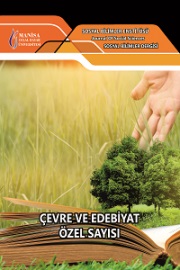Perception of Nature and the Language of Imperialism in Rudyard Kipling’s the Jungle Book
Perception of Nature and the Language of Imperialism in Rudyard Kipling’s the Jungle Book
Author(s): Mahinur Akşehir UygurSubject(s): Social Philosophy, Novel, Human Ecology, Hermeneutics, Ontology
Published by: Celal Bayar Üniversitesi Sosyal Bilimler Enstitüsü
Keywords: Rudyard Kipling; The Mowgli Stories; imperialism; binary of man and nature;
Summary/Abstract: Published in 1894, The Jungle Book by Rudyard Kipling has become a great success in England. Telling the story of Mowgli who is raised by the animals in the Jungle, the book portrays Mowgli and animals as symbolizing the reunification of human beings and nature. The story is generally perceived as a Bildungsroman with undertones of imperialist discourse or Mowgli is perceived as a romantic hero who represents the noble savage that embraces and reunites with nature. However a closer look reveals the fact that the depictions of nature sanctified, function as discursive reproduction of its materialization and reinforcement of the modern hierarchy between man and nature and culture and nature. Thus, the aim of this article is to propose a fresh look at Kipling’s text through the frame of human-animal studies.
Journal: Celal Bayar Üniversitesi Sosyal Bilimler Dergisi
- Issue Year: 16/2018
- Issue No: Special
- Page Range: 129-140
- Page Count: 12
- Language: English

